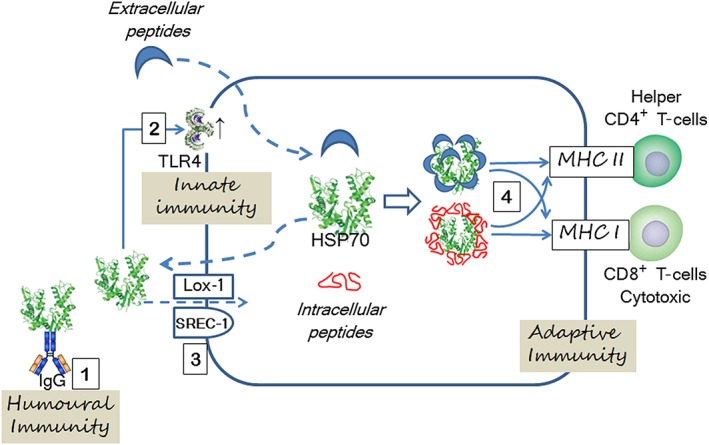Figure 5.

The role of HSP70 in essential hypertension depends on activation of adaptive autoimmune reactivity to itself or to the generation of neoantigens and, possibly, stimulation of innate immunity. Extracellular HSP70 induces the generation of anti‐HSP antibodies (1) and overexpression of TLR2 and TLR4 (2). A direct interaction between HSPs and TLRs has not been demonstrated, and it is possible that stimulation of TLRs by HSPs is indirect. A lectin‐type oxidized LDL receptor (Lox‐1) and scavenger receptor associated with endothelial cells (SREC‐1) mediate HSP70 endocytosis (3). Extracellular and intracellular peptides (isoketal–protein adducts and others) are associated with HSP70 that by repeated folding prevent their aggregation and support their traffic to MHC I and MHC II in APCs by both canonical and cross‐presentation pathways (4) and augment their antigenic potential. Interrupted lines indicate transmembrane displacement.
